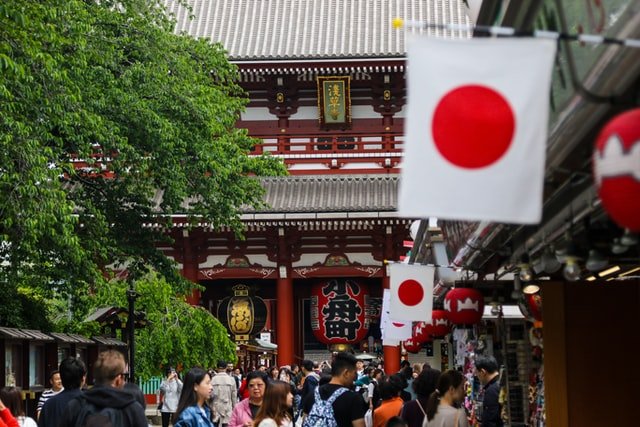Join us for an evening with
MASASHI NISHIHARA
President
Research Institute for Peace and Security (RIPS)
Presided by
GEORGE PACKARD
President
United States-Japan Foundation
6-6:30 pm | Registration
6:30–7:30 pm | Lecture and Q&A
7:30-8 pm | Reception
Japan Society
333 East 47th Street
New York, NY 10017
PLEASE NOTE: This is a FREE event open ONLY to UNA MEMBERS.
All non-UNA members who wish to attend must sign up for a basic UNA membership before registering.
All members must pre-register in order to confirm their seats. Seating is available on a first come, first served basis.
The 21st century has seen significant changes in the global balance of power alongside the emergence of serious regional threats, such as North Korea's nuclear arsenal, and transnational threats, such as cyber-terrorism.
In response to these potential threats, last December Japan established a new National Security Council and adopted its first National Security Strategy, centralizing its existing security apparatus under the new policy of "Proactive Contribution to Peace." While it is yet to be seen how this new system will operate, it has already changed the landscape of security in East Asia.
In this lecture, Dr. Masashi Nishihara, President of the Research Institute for Peace and Security, discusses the implications of these changes in national security policy on regional security and the Japan-U.S. alliance. The talk will be presided by George Packard, President of United States-Japan Foundation.
This event is organized by Japan Society.
Guest Speakers
MASASHI NISHIHARA
Masashi Nishihara is President of the Research Institute for Peace and Security.
Until March 2006 he served as President of the National Defense Academy, Yokosuka, for six years. From 1977-99 he was Professor of International Relations at the Academy. During that period, he also served as Director of the First Research Department of the National Institute for Defense Studies, Tokyo (1993-95), and as Dean of the Academy's School of Social Sciences (1996-2000). In 1979 he was Visiting Fellow at the Australian National University, Canberra, and in 1981-82 he also was Visiting Fellow at the Rockefeller Foundation, New York.
From 2001 to 2003, Dr. Nishihara was a member of Prime Minister Junichiro Koizumi's Task Force on External Relations, and in 2004-06 he was a member of the Weapons of Mass Destruction Commission (chaired by Hans Blix). In February 2013, he became a member of Prime Minister Abe's consulting committee on the establishment of the National Security Council.
His recent publications include: Reconsidering the Japan-U.S. Alliance (co-editor, 2010); "Asian Perspectives in 2011: China's 'Coercive' Diplomacy Leads to New Power Realignments," in RIPS Policy Perspectives (No. 11, August 2011); "East Asian Security and Japan's Response," in The Structure of Global Crisis and Japan's Strategy (eds. Kazuo Yoshida and Shigeru Fujimoto, 2013). In February of 2013 he was awarded The Sankei Shimbun's best columnist prize for 2012.
Dr. Nishihara graduated from the Law Department of Kyoto University and received his M.A. and Ph.D. in political science from the University of Michigan.
GEORGE R. PACKARD
George R. Packard has been President of the United States-Japan Foundation since July 1998. A private and independent grant-making organization with $83 million in assets, the Foundation is committed to promoting stronger ties between the US and Japan through greater mutual knowledge and understanding, to increasing broad awareness of important public policy issues, and to addressing common concerns in the Asia-Pacific region.
Dr. Packard is also Adjunct Professor of Political Science at Columbia University, where he offers a graduate seminar on US-Japan Relations from Pearl Harbor to the Present. His latest book is Edwin O. Reischauer and the American Discovery of Japan (Columbia University Press, 2010). He is also Chairman of the Advisory Board at the Weatherhead East Asian Institute at Columbia.
Dr. Packard was Dean of the Johns Hopkins School of Advanced International Studies (SAIS) from 1979 to 1993 where he founded the Johns Hopkins Foreign Policy Institute, the SAIS Review, the Reischauer Center for East Asian Studies, and the Hopkins-Nanjing Center in China. He also served as visiting President of the International University of Japan in Niigata from 1994-1998.
Earlier in his career, Dr. Packard was an intelligence officer and later a special assistant to US Ambassador Edwin O. Reischauer in Tokyo. He has also worked extensively in journalism, first as a diplomatic correspondent for Newsweek, and then as White House correspondent and then executive editor of the Philadelphia Evening and Sunday Bulletin. His articles have appeared in the New York Times, Washington Post, Foreign Affairs and elsewhere.
He received from the Japanese Government the Order of the Rising Sun, Gold and Silver Stars in November 2007 for his service in strengthening friendship and understanding between the US and Japan.
Dr. Packard received his BA (magna cum laude) from Princeton University and his MA and Ph.D. from Tufts' Fletcher School of Law and Diplomacy. He has written or edited eight books and sits on several boards. He lives with his wife in Washington, DC.
DISCLAIMER: All ticket sales for events are final. Please remember that your purchase represents your commitment to attend an event — there will be NO refunds issued.
NOTE: Only UNA-NYC Members have guaranteed seating to all our Ambassador Series events, and attend for free or pay the discounted Members' admission, while UNA-NYC Student Members attend most events for free. While we do offer a pay-at-the-door policy for guests and non-members, our events are often sold-out, so we strongly encourage membership with UNA-NYC to guarantee your seats!




